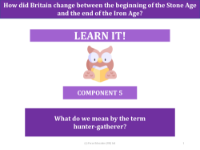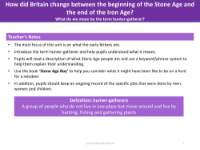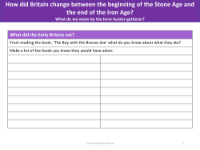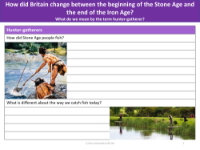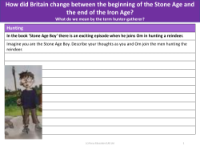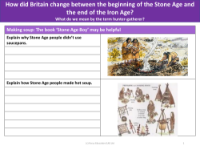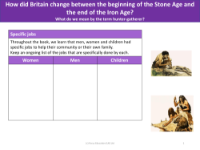Early Britons and fishing - Info sheet
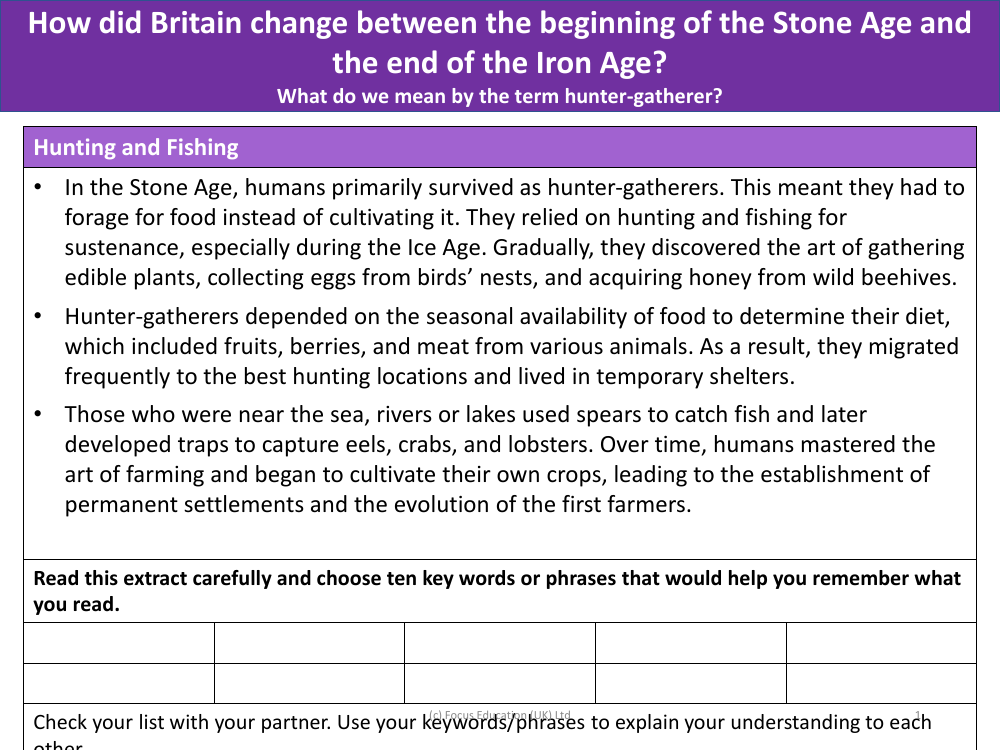
History Resource Description
During the Stone Age, early Britons lived as hunter-gatherers, a lifestyle that involved foraging and sourcing food directly from their environment, rather than cultivating it through agriculture. Their survival hinged on the ability to hunt animals and fish, particularly during the harsh conditions of the Ice Age. As time passed, these ancient peoples expanded their diet by learning to gather edible plants, harvest eggs from nests, and collect honey from wild bees. The hunter-gatherer diet was heavily influenced by the seasons, as the availability of different foods changed throughout the year, leading to a nomadic way of life with frequent relocations in pursuit of the most fertile hunting grounds and the construction of temporary dwellings.
Proximity to water bodies like seas, rivers, and lakes allowed these early inhabitants to refine their fishing techniques, initially using spears and later developing traps to catch aquatic creatures such as eels, crabs, and lobsters. As their skills and knowledge evolved, they discovered the principles of agriculture, which marked a significant turning point. This newfound ability to farm led to the cultivation of crops, the formation of stable communities, and the dawn of permanent settlements. Consequently, the transition from nomadic hunter-gatherers to settled farmers signified a profound change in British life, paving the way for the development of society through the Stone Age and into the Iron Age.
